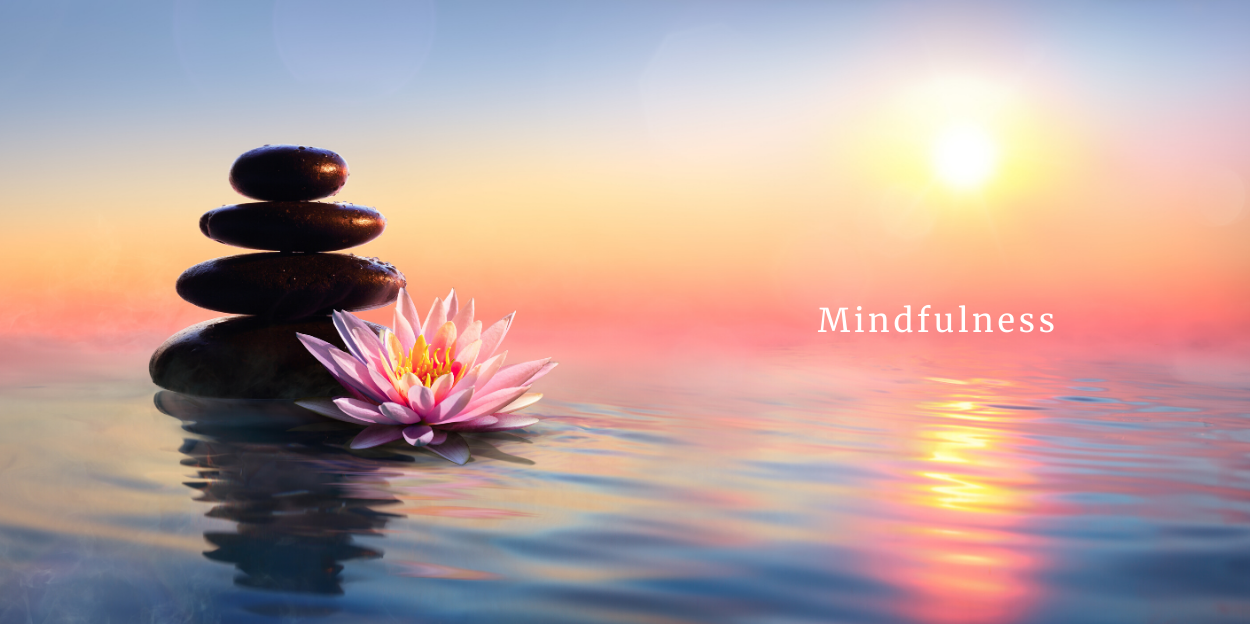
Mindfulness is described as “paying attention on purpose,” by Jon Kabat-Zin, PhD, University of Massachusetts Medical School, who pioneered the use of the mindfulness-based stress reduction (MBSR) in medicine in the U.S.
What does it mean to pay attention on purpose? It has to do with focusing on the present moment using all your senses without judging what you think, feel, or sense.
“We use mindfulness as a placeholder for being aware, but it’s different than being somewhat aware of what’s around when you are rushed, pressured, or lost in thought about the past or present,” said Margaret Fletcher, who teaches online MBSR courses at East Coast Mindfulness. “It’s a way of feeling awake and attuned to what’s happening around you.”
“Since getting NETs, I try to ‘treasure each moment,’” said Judy Wilkinson. “Everything I do is based on this motto and my life has changed substantially.”

Judy discovered mindfulness about six months after her surgery while enrolled in the ENRICH survivorship program offered by the Australian Cancer Council. To continue learning, she enrolled in a hospital-based mindfulness program and then two different online courses from Monash University in Australia. She also used apps, like HealthStoryLines, meditation CDs, and Tai Chi classes to improve her practice.
“When I don’t practice it, I can feel depressed about my situation and a five-minute session improves my outlook,” said Judy.
Living in the present moment
Our minds constantly wander. People mull over conflicts in the past and jump to conclusions about the future, which can cause physical symptoms like tense muscles, faster breathing, and changes in heartbeat. When practicing mindfulness, people learn to pay attention to emotional or physical cues, which serve as a reminder to slow down and center themselves.
“Mindfulness is talking yourself down from negative thoughts and that takes practice as it’s easy to get caught up in that. It makes you feel more positive,” said Judy. “When you’re unwell with this disease you’re constantly seeing specialists and that causes great stress. I’ve learned I need mindfulness to achieve a better quality of life while living/surviving with cancer.”
Meditation is a common way people settle their minds and bodies during times of stress, and as part of a daily routine. The practice can be as simple as sitting in a comfortable chair, closing your eyes, and just focusing on your breath for a few minutes.
“During lockdown, I listened to meditations daily. Sometimes twice by sitting on my couch, closing my eyes, and visualizing being somewhere beautiful, usually with a river sound. It really calmed my thoughts,” said Judy.
Explore mindfulness
Look at these two different scenarios of a simple walk to the corner to understand what it means to be more present in the moment.
Learn more
Many hospitals and health centers offer mindfulness, meditation, or MBSR courses for a fee. During COVID-19 many in-person classes have been replaced with online versions, making it easy to access the information wherever you are. Search online for resources near you or check out the following list of resources to learn more about mindfulness.
- Practice Mindfulness and Relaxation. Springboard Beyond Cancer.
- East Coast Mindfulness Video Library
- What is Mindfulness? Center for Mindfulness, University of Massachusetts
- UCSF Mindfulness-Based Cancer Recovery Program
- UMass Memorial Center for Mindfulness
- Mindfulness and Cancer. ASCO Post, 2018.
- Mindfulness Can Help Patients with Cancer. Oncology Nursing News, 2020.
- Meditation. Cancer Research UK. 2019
- Meditation Audio Series. Dana-Farber Cancer Institute.
